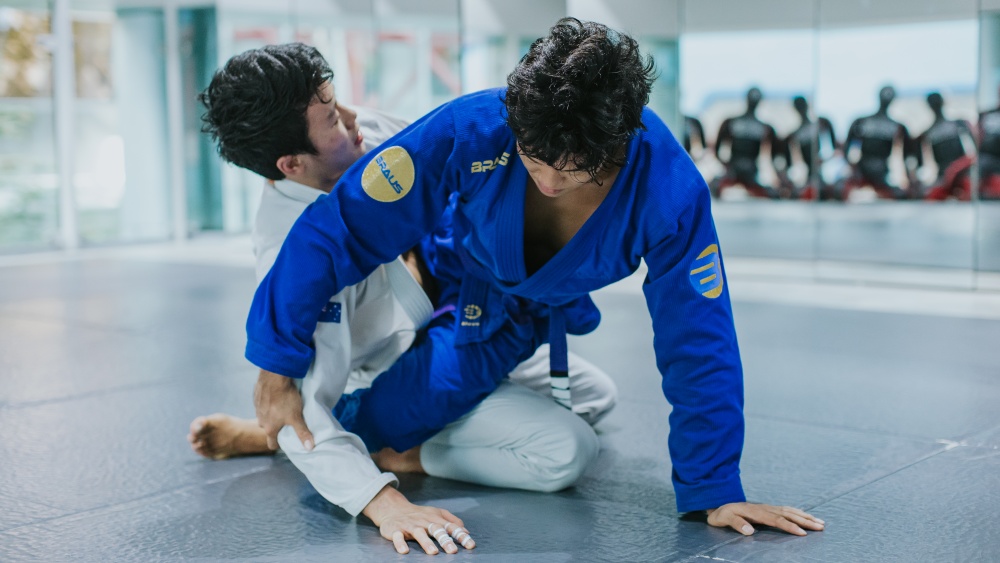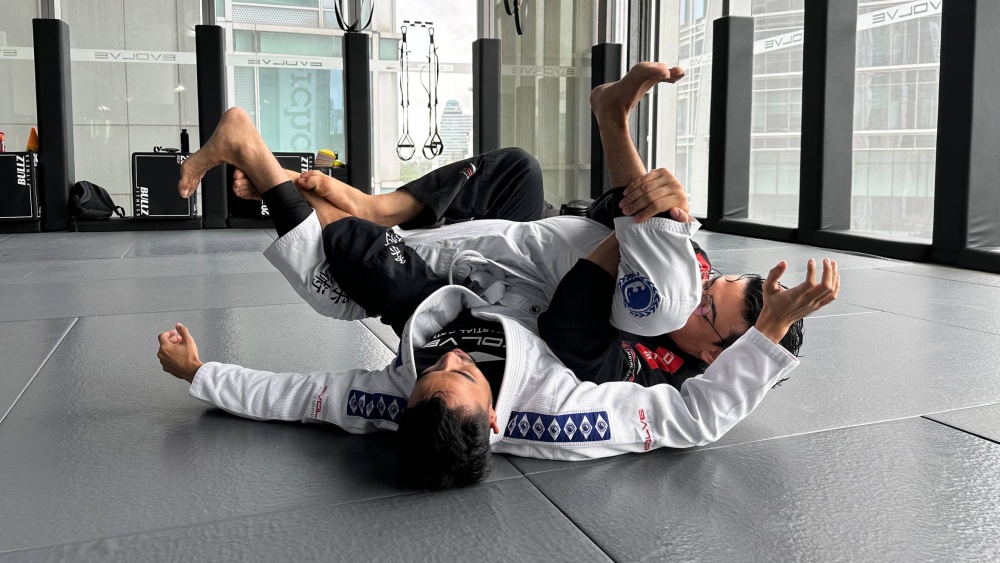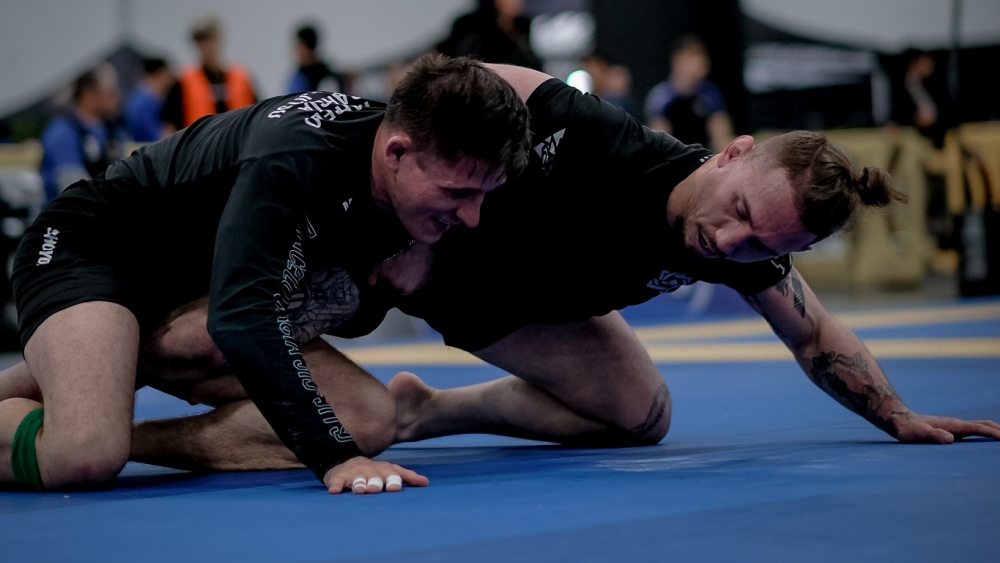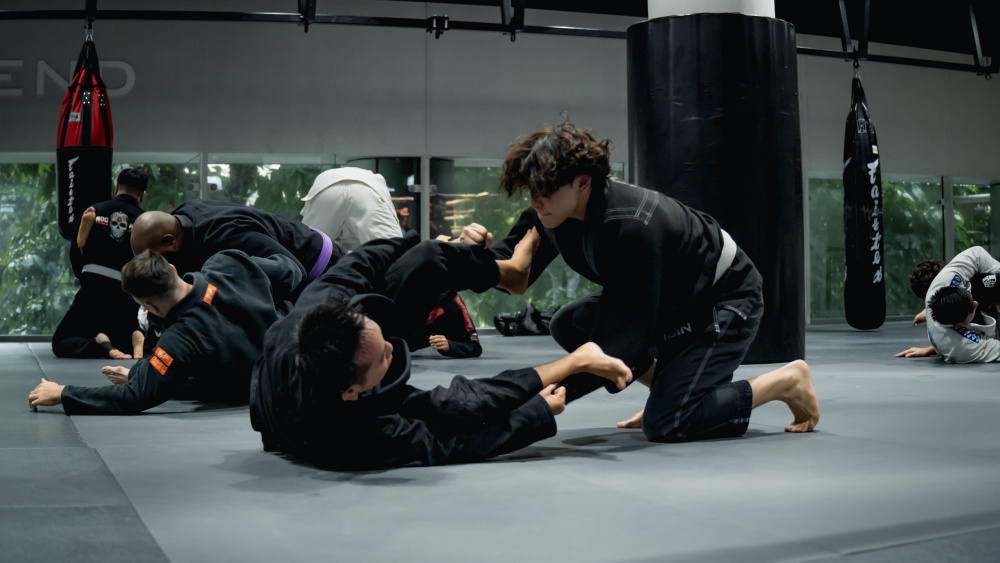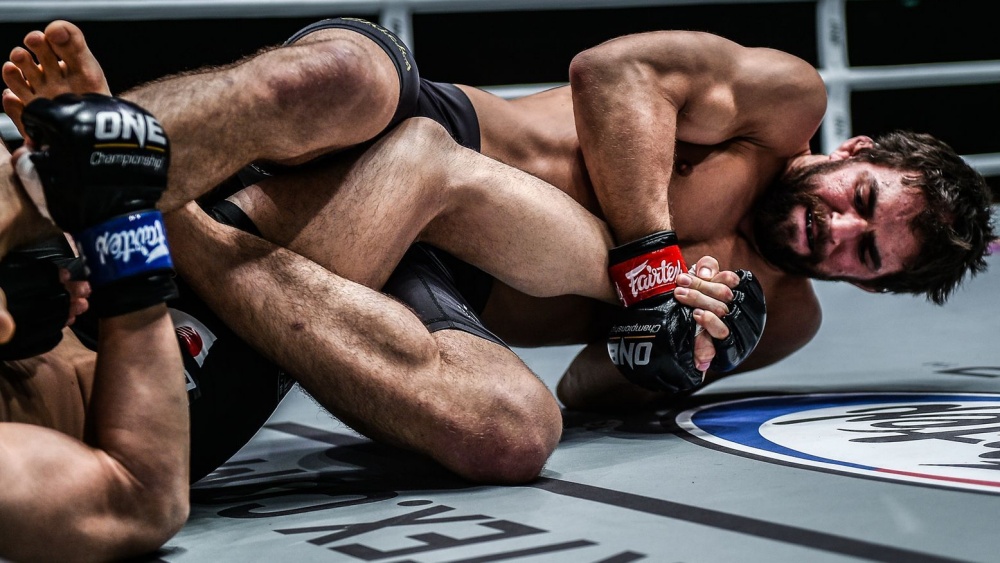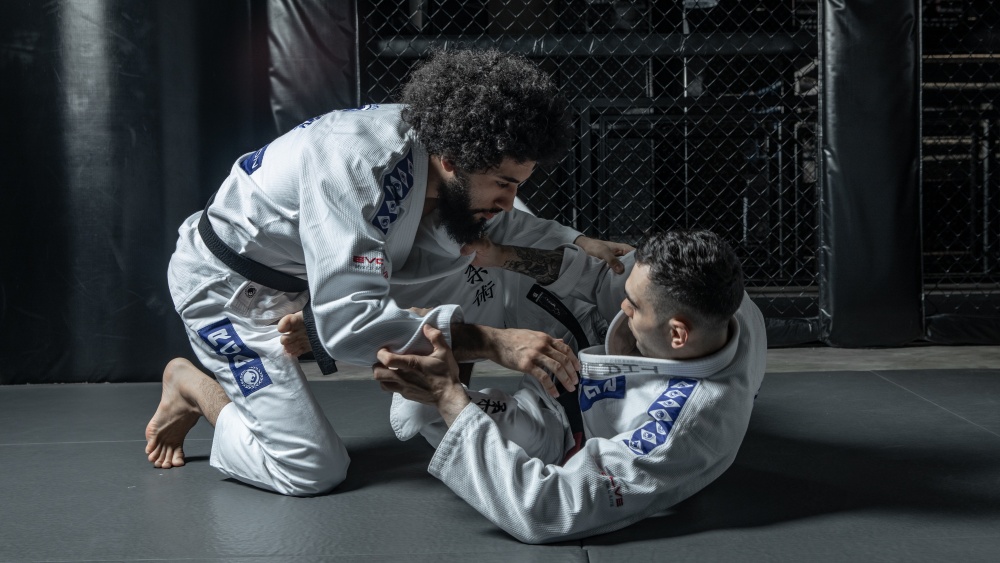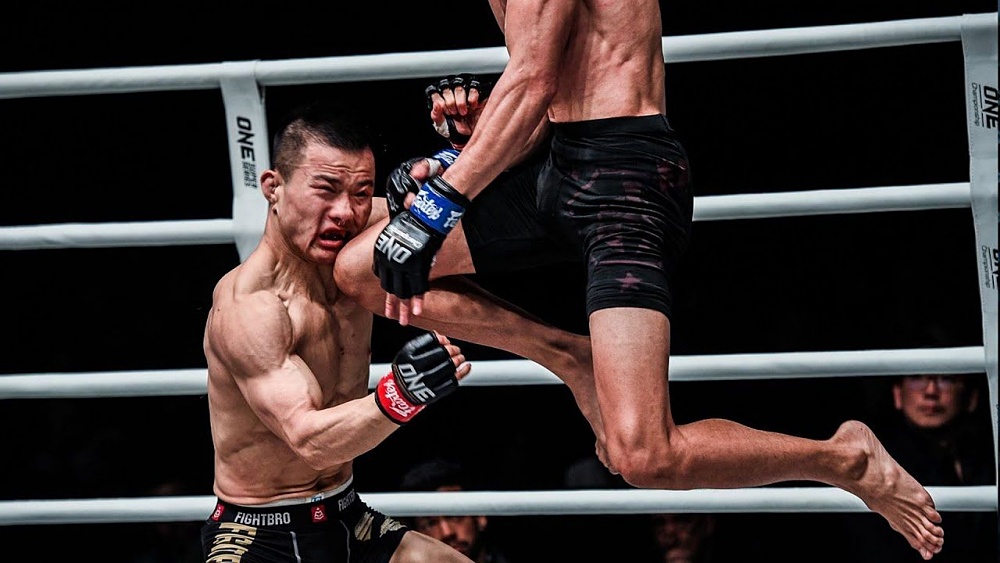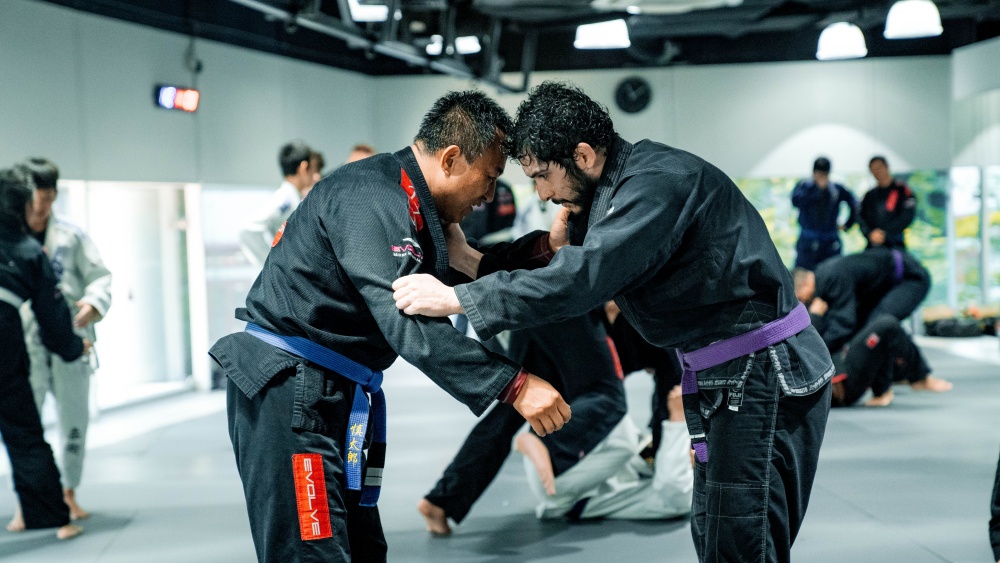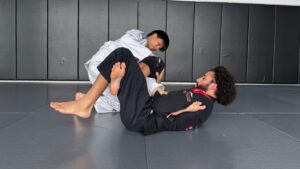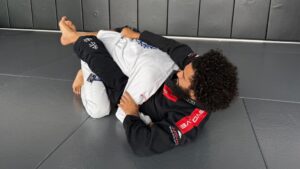The closed guard is likely the first type of guard a student will learn in BJJ. The closed guard is just one of the many guards you’ll encounter in your training. It is a part of the identity of BJJ as a ground-based martial art to emphasize guard work. While learning the closed guard is fundamentally the safest way to build a defensive game around, it can also be used offensively to sweep and submit opponents. Today, we will talk about a technique from the closed guard in BJJ, the hip bump sweep.
What Is The Hip Bump Sweep?
As mentioned above, the closed guard is the most basic guard in BJJ and is probably the first type of guard that you’ve learned. After learning about the closed guard and its purpose (to control and break the opponent’s posture), the next things you’re probably taught are some submissions like the cross collar choke, triangle, armbar, and a basic sweep from the closed guard. One of the first sweeps that a beginner will learn is the hip bump sweep from closed guard.
The hip bump sweep is a technique that unbalances the opponent towards a direction, typically backward, but can be applied from the sides as well. Because of the positioning of the legs, the hip bump sweep must be performed by turning your body at an angle since the legs won’t allow you to push the opponent. This means that it is important to first grab the opponent’s opposite arm with your far arm across their body.
Considering that the hip bump sweep is uncomplicated to perform, you must first ensure the opponent’s hand touches the mat to effectively isolate it for an attack. Doing so will make the sweep easier to pull off. Once set, see if the opponent tries to regain their posture. When this happens, perform the hip bump, as it will most likely sweep the opponent.
There are different ways to set up the hip bump sweep. One of them is to play around posture breaks by using a cross collar grip to create a threat, forcing the opponent to regain their posture. The hip bump sweep is simple yet proven to be effective even in the highest levels of competition.
It is easy to learn, especially for beginners, since it doesn’t require performing complicated technical movements, only unbalancing the opponent with a bump from the hips as you sit up from the ground.
After landing a successful hip bump sweep, getting the mount position is not the only thing you can attain. You can use different submissions to connect with this technique, such as the triangle, kimura, and guillotine. It is a good idea to use these submission options as you finish the hip bump to add more versatility to your offense.
How To Perform The Hip Bump Sweep
The hip bump sweep uses your weight to push the opponent’s hips, forcing them to fall on their back. An opponent will not expect this sweep when their posture is constantly under threat. Keep in mind to stay connected with the opponent when attempting the sweep, as the power of this technique comes from the hips, so the closer you are to the opponent, the more powerful the sweep will be.
This video by BJJ black belt Jon Thomas explains the details of the hip bump sweep. As mentioned earlier, the hip bump sweep is typically done from the closed guard. To break the opponent’s posture, use your knees to pull and crunch to bring them forward. This will force the opponent to use their hand to base, either on the mat or on your body.
This is not easy as it seems. People inside the guard will fight their way to prevent their posture from getting broken. The common reaction is to lean back as straight as possible to stay upright.
An opponent leaning far back means it will be easier for you to bring yourself up and use the momentum to come up and apply the hip bump sweep. To set the hip bump if the opponent is leaning back, distract them by applying collar grips, as this will divert their attention and focus on breaking your grips first. Once distracted, crunch your body up fast and sit up with your hand posting on the floor. As you get up, this is the time to unlock your legs and grab the opponent’s triceps and pull it in with your other hand.
A typical reaction when you open your guard to complete the sweep is for your opponent to lock their hands around your body. This is the ideal reaction, as it will be easier for you to execute the sweep as you drive your foot over on the floor. Continue the sweep by bumping as you pull the tricep inside. This makes it difficult for the opponent to pose and maintain balance, allowing you to land on the mount after sweeping.
There are many variations of the hip bump sweep. An important point to understand is the correct timing to go for the sweep. The cue for the hip bump sweep is when the opponent leans backward. That is the best time to sit up, grab the tricep, and go for the sweep.
Opponents may have varying reactions to the threat of the sweep, such as pummeling the hands, leaning back, or driving back into the closed guard. The key to understanding how to set up the hip bump sweep against an opponent is to find the way to combine the skills of constantly breaking the posture through collar grips and moving the opponent’s hand to the sides with sleeve grips. This will force the opponent to react, removing the hip bump sweep out of their perceived threat only for you to catch them unawares.
Final Thoughts
The hip bump sweep is a great option to include in your overall guard game. It is one of the simplest yet most effective sweeps to use. Anyone, regardless of age and skill level, can use the hip bump sweep to effectively reverse an unsuspecting opponent. Like any other technique in BJJ, understanding how to set up the technique with proper timing and execution will lead to success.
You may also like:
